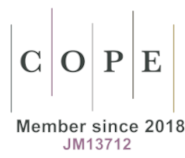Sport in International Relations. Expectations, Possibilities and Effects
DOI:
https://doi.org/10.2478/ipcj-2013-0004Słowa kluczowe:
sport, politics, international relations, sport as a political toolAbstrakt
The aim of this article is to show how sport can matter in international relations. Sport can be a subject or a tool of international relations. It can be used by states or geopolitical blocks to display their alleged superiority or any other desired characteristic. Governments may desire athletic victories, which are meant to imply, for example, the power of the state and its political and economic system. Participation in sport can also be used for political reasons on an international scale; a number of political objectives can be achieved by states by participating (or not) in sports events. Not only is sport affected by a country’s policies, but on certain occasions sports events can influence states.
Pobrania
Bibliografia
Aman, M.S. Mohamed, M. and Omar-Fauzee. M.S., “Sport for All and Elite Sport: Underlining Values and Aims for Government Involvement via Leisure Policy.” European Journal of Social Sciences, 4 (2009): 659-668.
Zobacz w Google Scholar
Anderson, Richard. “Olympic Success: How much Does a Gold Medal Cost?” 6 August 2012. Web. 15 October 2012 http://www.bbc.co.uk/news/business-19144983
Zobacz w Google Scholar
Bian, X. “Predicting Olympic Medal Counts: the Effects of Economic Development on Olympic Performance.” The Park Place Economist, XIII: 37-44.
Zobacz w Google Scholar
Billings, Andrew. Butterworth Michael and Turman, Paul. Communication and Sport: Surveying the Field. London: Sage, 2012.
Zobacz w Google Scholar
Chappelete, Jean-Loup. Bayle, Emmanuel. Strategic and Performance Management of Olympic Sport Organisations. Champaign: Human Kinetics, 2005.
Zobacz w Google Scholar
Coakley, Jay. Sports in Society: Issues and Controversies. New York: McGraw- Hill, 2009.
Zobacz w Google Scholar
DS: wzrasta nieufność wobec Gruzji, 14 September 2008. Web. 9 June 2009 http://www.wprost.pl/ar/138609/DS-wzrasta-nieufnosc-wobec-Gruzji/
Zobacz w Google Scholar
Edelman, R. “Stalin and his Soccer Soldiers.”, History Today, 2 (1993), Web. 26 July 2011 http://www.historytoday.com/robert-edelman/stalin-and-hissoccer-soldiers
Zobacz w Google Scholar
Ferenc, Jakub. Sport w służbie polityki: Wyścig Pokoju 1948-1989. Warszawa: Wydawnictwo Trio, 2008.
Zobacz w Google Scholar
Grzegrzółka K. “Sportowa wojna światowa.” Wprost 35 (2008).
Zobacz w Google Scholar
Guoqi, Xu. Olympic Dreams: China and Sports 1895-2008, President and Fellows of Harvard College 2008.
Zobacz w Google Scholar
Guttmann, Allen. From Ritual to Record: The Nature of Modern Sports. New York: Columbia University Press, 1978.
Zobacz w Google Scholar
Guttmann, Allen. The Olympics: A History of Modern Games. Illinois: University of Illinois Press, 2002.
Zobacz w Google Scholar
Hazan, Baruch. Olympic Sports and Propaganda Games: Moscow 1980. Transaction Publishers, 1982.
Zobacz w Google Scholar
Hennessy, P. “London 2012 Olympics: Team GB Success Sparks Burst of Pride in Union Flag”, The Telegraph, Monday 15 October 2012. Web. 15 October 2012 http://www.telegraph.co.uk/sport/olympics/news/9485031/London-2012-Olympics-Team-GB-success-sparks-burst-of-pride-in-Union-flag.html#,
Zobacz w Google Scholar
Hill, Christopher. Olympic Politics: Athens to Atlanta 1896-1996. Manchester, New York: Manchester University Press, 1996.
Zobacz w Google Scholar
Holt, Richard. Sport and the British: A Modern History. Oxford: Oxford University Press, 1992.
Zobacz w Google Scholar
Hong, F. Wu, P. and Xiong, H. “Beijing Ambitions: An Analysis of the Chinese Elite Sports System and its Olympic Strategy for the 2008 Olympic Games.” The International Journal of the History of Sport 4 (2005), 24 January 2007. Web. 11 October 2012 http://www.tandfonline.com/doi/full/10.1080/09523360500126336
Zobacz w Google Scholar
Hong, Fan, Xiaozheng Xiong. “Communist China: Sport, Politics and Diplomacy.” Sport in Asian Society: Past and Present. Eds. J. A. Mangan, F. Hong, Abingdon: Taylor & Francis, 2003: 275-294.
Zobacz w Google Scholar
House of Commons Debate. 6 October 2008. Web. 18 January 2009 http://www.publications.parliament.uk/pa/cm200708/cmhansrd/cm081006/debtext/81006-0001.htm
Zobacz w Google Scholar
Houlihan, B M. Green. Eds. Comparative Elite Sport Development. Oxford-Burlington: Elsevier 2007.
Zobacz w Google Scholar
“How Reds ‘Mobilized.’ ” Life, July 28, (33) 1952.
Zobacz w Google Scholar
Jarvie, Grant. Hwang, Dong-Jhy and Brennan, Mel. Sport Revolution and the Beijing Olympics. Oxford: Berg Publishers, 2008.
Zobacz w Google Scholar
Jay, Kathryn. More Than Just a Game: Sports in American Life Since 1945. New York–Chichester: Columbia University Press, 2004.
Zobacz w Google Scholar
Jucewicz, Andrzej. Trzy Olimpiady. Warszawa: Sport i Turystyka, 1972.
Zobacz w Google Scholar
Kto pojawi się na otwarciu igrzysk? Kogo nie będzie?, 8 August 2008. Web. 7 July 2008 http://wiadomosci.gazeta.pl/Wiadomosci/1,80708,5563036,Lista_obecnosci___Pekin_2008.html
Zobacz w Google Scholar
Kultura Fizyczna i Sport w Związku Radzieckim: Materiały do Pogadanki na Miesiąc Pogłębienia Przyjaźni Polsko-Radzieckiej. Warszawa: Biuro Propagandy i Agitacji GKKF, 1953.
Zobacz w Google Scholar
Large, David. Nazi Games: The Olympics of 1936. New York, London: W. W. Norton & Company, 2007.
Zobacz w Google Scholar
Lewandowski R. “Sportowe i polityczne przygotowania Chińskiej Republiki Ludowej do Igrzysk Olimpijskich Pekin 2008.” 9 August 2008. Web. 17 January 2009 http://www.polska-azja.pl/2008/08/09/rafal-lewandowskisportowe-i-polityczne-przygotowania-chinskiej-republiki-ludowej-do-igrzyskolimpijskich-pekin-2008/
Zobacz w Google Scholar
Lipoński, Wojciech. Od Aten do Atlanty: Mini historia nowożytnych igrzysk olimpijskich 1896-1996. Poznań: Wydawnictwo Naukowe PWN, 1996.
Zobacz w Google Scholar
“London 2012 Opening Ceremony Audience Hit 900 Million Predicts IOC,” 7 August 2012. Web. 4 October 2012 http://www.independent.co.uk/sport/olympics/news/london-2012-opening-ceremony-audience-hit-900-million-predicts-ioc-8015361.html
Zobacz w Google Scholar
Maraniss, David. Rome 1960: The Olympics that Changed the World. New York: Simon & Schuster, 2008.
Zobacz w Google Scholar
Michalik, M. B. Ed. Kronika Sportu. Warszawa: Kronika, 1993.
Zobacz w Google Scholar
Miller, David. Historia Igrzysk Olimpijskich i MKOl: Od Aten do Pekinu 1894-2008. Poznań: Dom Wydawniczy Rebis, 2008.
Zobacz w Google Scholar
Młodzikowski, Grzegorz. 20 Olimpiad Ery Nowożytnej: Idea i rzeczywistość. Warszawa: Sport i Turystyka, 1973.
Zobacz w Google Scholar
Monnington, T. “The Politics of Black African Sport”. The Politics of Sport. Ed. L. Allison, Manchester: Manchester University Press, 1986.
Zobacz w Google Scholar
Porada, Zbigniew. Starożytne i Nowożytne Igrzyska Olimpijskie. Kraków: KAW Almanach.
Zobacz w Google Scholar
Ramzy A. “Beijing’s Spielberg Problem.” 15 February 2008. Web. 2 April 2009 http://www.time.com/time/world/article/0,8599,1713718,00.html
Zobacz w Google Scholar
Reich K. “Doleful Days for the Games”. Sports Illustrated, May 21, 60 (1984): 16-22.
Zobacz w Google Scholar
Rinehart R.E. “Fists Flew and Blood Flowed” Symbolic Resistance and International Response in Hungarian Water Polo at Melbourne Olympics, 1956. Journal of Sport History, 23 (1996): 120-139.
Zobacz w Google Scholar
Riordan J. “Rewriting Soviet Sports History.” Journal of Sport History, 20 (1993): 247-258.
Zobacz w Google Scholar
Riordan, James. Sport in Soviet Society. Cambridge: Cambridge University Press, 1977.
Zobacz w Google Scholar
Runciman D., “Powitanie z Afryką.” Tygodnik Forum, 23 (2010). Web. 16 October 2012 http://www.tygodnikforum.pl/forum/index.jsp?place=Lead10&news_cat_id=249&news_id=8858&layout=1&forum_id=6861&page=text
Zobacz w Google Scholar
Senn, Alfred. Power, Politics and Olympic Games: A History of Power Brokers, Events and Controversies that Shaped the Games. Champaign: Human Kinetics, 1999.
Zobacz w Google Scholar
Slack T. Yuan-min H. Chiung-tzu T. and Hong F. “The Road to Modernization: Sport in Taiwan.” Sport in Asian Society. Past and Present, Eds. J. A. Mangan, F. Hong, Abingdon: Frank Cass, 2003: 343-365.
Zobacz w Google Scholar
Stradling, Jan. More than a Game: When Sport and History Collide. Millers Point: Pier 9, 2009.
Zobacz w Google Scholar
Tikander V. Encyclopaedia of Modern Olympic Movement, Eds. J. E. Findling, K. D. Pelle, Westport: Greenwood Press, 2004: 135-146.
Zobacz w Google Scholar
“Top 10 football Stories: 3- Iran vs USA,” no date. Web. 15 October 2012 http://starscene.dailystar.com.lb/world-cup-scene/2010/07/top-10-footballstories-3-iran-vs-usa/
Zobacz w Google Scholar
“TVP podała wyniki: rekord oglądalności pobity!,” 9 June 2012. Web. 4 October 2012 http://www.polskieradio.pl/5/3/Artykul/621527,TVP-podala-wynikirekord-ogladalnosci-pobity
Zobacz w Google Scholar
“Values and Aims for Government Involvement via Leisure Policy.” European Journal of Social Sciences, 4 (2009).
Zobacz w Google Scholar
Walters, Guy. Igrzyska w Berlinie: Jak Hitler ukradł olimpijski sen. Poznań: Rebis Dom Wydawniczy, 2008.
Zobacz w Google Scholar
Yardley J. “China’s Leaders Try To Impress and Reassure the World.” The New York Times. 8 August 2008. Web. 16 October 2012 http://www.nytimes.com/2008/08/09/sports/olympics/09china.html?th&emc=th
Zobacz w Google Scholar
Żukow, A. Sikorska. Eds. Wybrane zagadnienia z podstaw rekreacji i turystyki. Ośrodek Rekreacji, Sportu i Edukacji w Poznaniu, Bydgoszcz 2009.
Zobacz w Google Scholar
Pobrania
Opublikowane
Jak cytować
Numer
Dział
Licencja

Utwór dostępny jest na licencji Creative Commons Uznanie autorstwa – Użycie niekomercyjne – Bez utworów zależnych 4.0 Międzynarodowe.

















